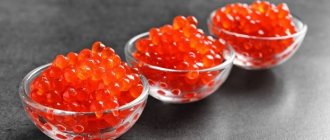The article was prepared by a specialist for informational purposes only. We urge you not to self-medicate. When the first symptoms appear, consult a doctor.
A beautiful body and good health directly depend on what a person eats. Scientists have identified the 20 most harmful foods that lead to obesity, disruptions in the functioning of the body, and even affect the ability to procreate. If you remove them from the menu, the body will respond with gratitude. Moreover, your health improves literally the next day.
Vegetable and fruit chips
Many people consider vegetable and fruit chips to be a dietary product. Women who are losing weight love to include them in their diet. Mothers feel free to feed their children banana chips. However, there is no benefit left in such products due to the way they are processed.
Both fruit and vegetable chips are fried in oil. To make them crunchy, they are dipped in sauces with various spices or in sugar syrup. Therefore, the final product is a source of fats, harmful additives and flavor enhancers.
Low-fat foods
The most unobvious and therefore insidious heroes of our list. You will be surprised, but milk can also be a harmful product. Many people who want to lose weight naively believe the tricks of marketers and literally sweep milk, cottage cheese, yoghurts and various desserts labeled “low-fat” or “light” off the shelves. There is indeed less fat in such products, but there is more than enough carbohydrates and harmful sweeteners. In addition, a person subconsciously eats more, believing that a low-fat product will not harm the figure. In fact, everything turns out exactly the opposite: metabolic processes in the body are disrupted, weight increases, fat-soluble vitamins and calcium cease to be absorbed, which leads to vitamin deficiency and bone fragility.
What to replace
Dairy products with normal fat content from 2.5 to 5%.
pixabay.com/
Sprouted seeds from the store
It would seem that such a product should provide maximum benefit. However, it caused mass poisoning of people. Over the past 20 years of regular consumption of bean sprouts, broccoli, peas and alfalfa, 48 outbreaks of intestinal infections have been reported in America. 15,000 people were injured. [1]
The fact is that germination of seeds requires conditions with high humidity and temperature. This environment leads to the rapid proliferation of bacteria. Therefore, sprouts become a source of E. coli, salmonella, and listeria.
Carbonated drinks
The harm of such drinks lies in the excessive amount of food “chemicals” contained in their composition. Coca-Cola, lemonade, and soda contain large amounts of sugar. Constant consumption of such drinks leads to gradual leaching of calcium from bones, digestive problems and other negative consequences. Even drinking low-calorie drinks with sweeteners will still not bring anything good to the body. Most doctors claim that sweeteners also harm the body.
Energy
All energy drinks taste good because they contain a high dose of corn syrup. Scientists have proven that it promotes the early onset of menstruation and leads to weight gain. In the long term, this fat accumulation can lead to serious health problems such as fatty liver disease and type 2 diabetes. [2]
Any energy drink contains a lot of caffeine. It negatively affects a person’s well-being, disrupts his usual daily routine, and prevents him from falling asleep at night.
White bread, baked goods
There is no doubt: the smell of a freshly baked baguette from a nearby bakery will drive anyone crazy. If your legs are moving in the forbidden direction, just remember that the coveted loaf is the main source of fast carbohydrates, which means:
- leads to rapid weight gain;
- causes insulin spikes;
- increases the risk of diabetes;
- leads to diseases of the heart and blood vessels.
What to replace
Nutritionists advise using bread made from wholemeal flour or whole grain varieties.
pixabay.com/
Semi-finished meat products
Processed meat products are not beneficial to health. The main enemies of the human body are sausages and sausages. Dumplings, cutlets and canned food are no less dangerous. There is little meat in them, and there are a lot of preservatives, flavor enhancers, fats and harmful additives. If you regularly include such products in the menu, the level of cholesterol in the blood increases significantly, which causes the development of heart disease.
Lovers of semi-finished meat products suffer from excess body weight. Excess salt in such foods contributes to weight gain and other health problems.
Popcorn
Why is popcorn harmful? There is nothing harmful in corn itself. And properly prepared popcorn can even be beneficial when consumed in small quantities. However, the constant attribute of watching films in cinemas, which is prepared for mass consumption on an industrial scale, has nothing to do with healthy eating.
Popcorn: Unsplash
The main problem with making popcorn is using a lot of salt and sugar. In addition, popcorn is a very high-calorie product (about 400 kcal per 100 g) and contributes to the formation of fatty plaques. And a bucket of salted popcorn, eaten at once, can also harm the body’s water balance.
Vitamin supplements in the form of jelly candies
Vitamin jelly candies are liked by both adults and children. Moreover, they talk about their benefits from the TV screen every day. However, an analysis of the composition of such vitamins made it possible to establish that they contain many dyes, flavors, corn starch and sugar (up to 3 g per 1 serving). The listed substances are not capable of providing health benefits.
Scientists have proven that food dyes cause hyperactivity in children and also cause cancer in animals tested on them. The red dye has been found to cause cancer in laboratory rats. [3]
The concept of "bad food"
Junk food is a concept that has a broad meaning.
It combines a list of products that can cause harm to human health or appearance. In addition, representatives of certain communities classify as “bad food” foods whose consumption is contrary to their views.
spoiled
If products are stored for a long time or incorrectly, they acquire an unpleasant smell and taste, change color and consistency.
After eating them, a person may experience abdominal pain, intestinal upset, vomiting and other symptoms indicating food poisoning. Spoiled canned food, meat and fish are especially dangerous. After eating them, you can end up in the hospital. Food that is questionable should not be eaten. Nutritionists advise throwing it away without regret, so as not to risk your health.
Prohibited for medical reasons
Often, people who are diagnosed with any disease are advised by doctors to avoid foods that can aggravate their condition. For example, in case of cardiovascular diseases, salt is considered harmful, in case of diabetes mellitus it is necessary to avoid sweets, and people with celiac disease are prohibited from foods containing gluten.
If you have diabetes, you should not eat sweets.
A person who ignores a therapeutic diet risks provoking the progression of the disease and reducing the effectiveness of the drug treatment prescribed by the doctor.
Ethical considerations
People refuse to eat certain foods for ethical reasons.
A prime example is vegetarians, who do not eat meat because they are against killing animals for food.
You can often hear adherents of vegetarianism trying to convince others that eating animal food shortens life expectancy, but this theory has not received scientific validity.
From which they recover
Overweight people call unhealthy food food that contributes to excess weight. This category includes sweets, fatty and fried foods, nuts and other high-calorie foods that are prohibited during the diet. But it is impossible to say unequivocally that food from this category is harmful, since its consumption in reasonable quantities does not cause harm to health. The only danger is overeating.
People gain weight from fried and fatty foods.
Instant noodles
Instant noodles themselves do not cause serious harm to health. Seasonings and vegetable oil, which are contained in a separate sachet and are a complement to each such serving, are dangerous.
Scientists from Baylor University (America) have found that people who eat such noodles more than 2 times every 7 days are at high risk of developing cardiometabolic syndrome, heart disease, diabetes and stroke.[4]
Salt
Perhaps everyone knows that salt is a white poison. However, the main harm is caused not by the product itself, but by its quantity. The norm per day is only 10–15 g, taking into account the fact that salt is already contained in almost all the products that we eat. By adding salt or eating processed food (fast food, sausages, etc.), we many times exceed the daily salt requirement for the body. The situation is aggravated by eating out, since in a cafe or restaurant we are not able to track how many grams of “white poison” are added to a particular dish.
Here are just a few of the consequences of salt abuse:
- excess fluid stagnates in the body, which causes the formation of edema;
- the risk of osteoporosis increases;
- kidney failure occurs;
- heart disease develops;
- vision deteriorates;
- the balance of minerals is disturbed.
What to replace
Salt is highly addictive, and the less you use it, the less you will want to reach for the salt shaker. Over time, taste buds adapt to the new reality and you yourself will not notice how you begin to feel the true taste of the products. Lemon juice, mustard, unrefined vegetable oil and dry herbs will help make it more pronounced and bright.
pixabay.com/
Pangasius
In America and in a number of European countries, this fish is prohibited for sale. It is grown in Vietnam in the Mekong River. It is recognized as one of the dirtiest rivers on the entire planet. Not only sewage drains, but also waste from enterprises are drained into it.
In order for the fish to reproduce faster and gain weight, it is fed with growth hormones and antibacterial drugs. Testing of fish meat found that it is a source of heavy metals, chemicals, E. coli and listeria. [5]
Sugar
“Sugar is sweet poison!” — lamented Raisa Zakharovna, the heroine of the favorite Soviet comedy “Love and Doves.”
And in many ways she was right. Sugar is really bad for our health because:
- provokes increased insulin production;
- leads to obesity;
- is highly addictive;
- is the main culprit of dental and gum diseases.
The maximum allowed by the World Health Organization is 50 g per day. Everything else is excess, threatening extremely unpleasant consequences for beauty and health. Please note that sugar is not only candy and cakes, but also ketchup, breakfast muesli and even yogurt.
What to replace
The main thing is not a sweetener! Aspartame and other similar substances are even more harmful than regular sugar, so just gradually accustom yourself to drinking unsweetened tea and coffee, and eat as simple foods as possible so that you can control what is included and in what quantities.
pixabay.com/
Breakfast cereals for children
Studies show that each such product is a source of 10 hidden sugars. These include refined sugar and sugar substitutes of artificial and natural origin. Artificial sweeteners are dangerous to a child's health.
A study was conducted at the University of Texas that found that mice fed aspartame suffered from high blood sugar levels. These rodents always ate more food than the control group. As a result, they quickly gained excess weight.
Consequences of eating “bad” food
One pack of chips, a ring of smoked sausage or a portion of salad with mayonnaise will not harm your health, but if you eat dangerous foods often, you can get a whole “bouquet” of diseases:
- headache;
- high blood pressure;
- cancer;
- overweight;
- stroke;
- myocardial infarction;
- kidney and liver diseases;
- chronic diseases of the digestive system;
- allergies;
- vision problems;
- caries.
If you consume dangerous foods frequently, headaches appear.
People pay for their love of junk food with increased cholesterol, atherosclerosis, and diabetes. In addition, these products reduce the body's resistance to viral diseases.
Red meat
WHO in 2015 made a statement that red processed meat leads to the development of colon cancer. There is also evidence linking red meat to pancreatic and prostate cancer. Dishes made from pork, beef, veal and lamb, as well as horse meat and goat meat are considered dangerous. [6]
The main provocateurs of cancer were recognized as: bacon, steaks, ham and cutlets. They need to be removed from the menu altogether, or their consumption should be reduced to a minimum.
According to the latest estimates from the independent academic research organization Global Burden of Disease Project, about 34,000 cancer deaths per year are associated with high consumption of red meat.
John McDougall (MD) recommends replacing red meat with legumes, as well as fresh vegetables and fruits.
Juices
What is the harm from juices? Their main danger lies in eating fruits without fiber and high in sugar. Due to the lack of fiber, fructose is immediately absorbed by the body, raising blood sugar levels. When consuming fruits from which juice has been squeezed, the body spends time digesting the fiber, so the sugar comes in gradually.
Juices: Unsplash
One glass of juice can contain about 30–40 g of sugar, which borders on the daily requirement of an adult’s body. According to research by Kimber L. Stanhope, drinking drinks sweetened with fructose rather than glucose increases belly fat and also reduces insulin sensitivity in obese people.
Cherry
Cherry, or rather its pit, contains amygdalin. If you crack, chew, or otherwise damage a seed, you will immediately expose your body to hydrogen cyanide, or cyanide.
“If you swallow a few seeds, nothing will happen.” The body can handle some cyanide, but large amounts can be dangerous. Depending on the dose, this can be fraught with increased blood pressure or dizziness, noted Artem Ovod
.
The published lethal dose of cyanide is 1.7 mg per kg of human body weight (approximately 70-100 nucleoli).
Mushrooms
Experienced mushroom pickers know that not only fly agarics, false mushrooms and toadstools can be dangerous. Even an edible mushroom can pose a risk of poisoning if it is old and wormy. Overripe mushrooms produce toxic substances, protein decomposition products, which can cause poisoning.
– We take the freshness of meat and fish products very seriously. But usually such seriousness does not apply to mushrooms, although rotting mushrooms are no healthier than rotting meat,” explained Maxim Dyakov, mycologist, leading specialist at the Faculty of Biology of Lomonosov Moscow State University.
In addition, mushrooms are distinguished by an osmotrophic type of nutrition; they absorb nutrients over the entire surface of the body (mycelium). If the soil, forest floor or wood on which mushrooms grow contains heavy metals, radionuclides, agricultural pesticide residues and other toxic compounds, they end up in the fruiting bodies of the mushrooms that we collect.
Tangerines
They improve digestion, contain vitamins, essential oils and antioxidants, promote the absorption of iron, stimulate the cardiovascular system - all this is said about citrus fruits. Oranges, grapefruits and other members of the genus are really healthy - with a couple of caveats. Firstly, it is better to eat the whole fruit than to squeeze juice out of it: the drink loses some of its microelements and oxidizes during the preparation process. There is no need to talk about packaged juices: according to the doctor, they are sugar solutions, and not products valuable for health.
The second nuance is calorie content. 100 grams of tangerines, for example, contain 40 kcal, approximately the same calorie content as beer. This fact does not make citrus fruits harmful - rather, undesirable for those watching their weight. “It really surprised me. I don’t drink beer, I’m afraid of getting fat, but I eat kilograms of tangerines?” - exclaimed the expert.











